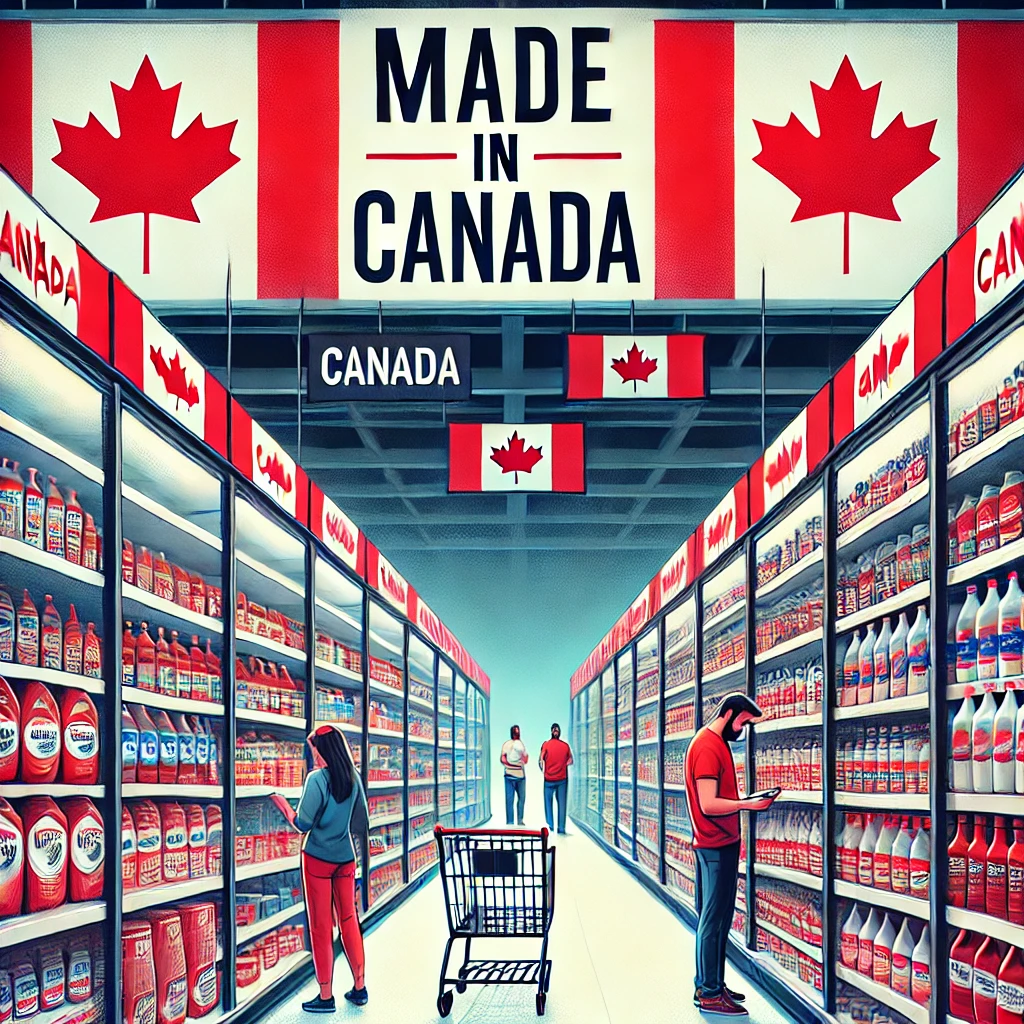Published Date: March 15, 2025 ✍️ Author: Global World Citizen News Team 🌍 Source: GlobalWorldCitizen.com
In a significant shift, Canadian grocery stores are moving away from U.S. products, reflecting a growing wave of consumer sentiment against American goods. As a result, U.S. businesses that rely on Canadian customers are beginning to feel the financial strain.
A Shift in Consumer Behavior
Canadian shoppers are becoming increasingly conscious of where their purchases come from. The change was immediate following the announcement of tariffs.
“Overnight, everything changed—maybe permanently,” said Alisa Gorokhova, a resident of Quebec. “Suddenly, there were ‘Made in Canada’ labels everywhere, and American alcohol vanished from the shelves.”
Many Canadian consumers are now actively checking product origins and making deliberate choices to avoid U.S. goods in protest of recent trade policies.
The mounting tensions stem from former U.S. President Donald Trump’s trade policies, including a 25% tariff on Canadian steel and aluminum. His rhetoric—often suggesting Canada should become the 51st U.S. state and referring to then-Prime Minister Justin Trudeau as a “governor”—fueled resentment, pushing many Canadians toward economic nationalism.
The Impact on U.S. Businesses
The boycott is having tangible effects on American businesses, particularly those in the food and agriculture industries.
Ethan Frisch, CEO and founder of Burlap & Barrel, a New York-based spice company, has received emails from long-time Canadian customers stating they will no longer purchase his products due to the boycott.
“We didn’t vote for Trump, and we also source some of our spices from Canada,” Frisch explained. “But this backlash adds risk to our supply chain, and it may force us to scale back purchases from our Canadian partners, which goes against our mission of supporting small farmers.”
Grocery Chains Prioritize Local Products
Major grocery chains across Canada are capitalizing on this shift, further promoting local and Canadian-sourced products.
- Sobeys Inc., Canada’s second-largest grocery retailer, stated that around 12% of its sales previously came from U.S. products. However, as the company prioritizes domestic sourcing, that percentage is expected to drop.
- Metro Inc., with over 1,000 stores across Quebec, Ontario, and New Brunswick, and Longo’s, a prominent grocery chain in the Greater Toronto Area, have both launched in-store programs to label Canadian products more prominently. They are also promoting locally made goods through digital marketing and newsletters.
Economic Ramifications
Despite Canada remaining the top importer of U.S. high-value agricultural products, this growing boycott could lead to significant consequences for the American economy, especially in agriculture.
Larry Gerston, a professor of public policy at San Jose State University, warns that the impact could be severe.
“This will hurt U.S. industries, no doubt,” Gerston said. “How much depends on the scale of the boycott, the products targeted, and whether the Canadian government reinforces the movement.”
The situation is further complicated by ongoing trade tensions with China.
Jerry Nickelsburg, an economics professor at UCLA’s Anderson School of Management, noted that American farmers received government subsidies during Trump’s presidency to counteract China’s retaliatory tariffs. However, with current federal budget constraints, such relief may not be available this time.
“If demand for U.S. agricultural products weakens in both Canada and China, it will drive down prices and directly impact farmers’ incomes,” Nickelsburg explained.
A Lasting Shift?
Canada’s growing preference for domestic products—fueled by both political and economic tensions—could mark a long-term shift in consumer behavior. If the trend continues, American businesses that rely on the Canadian market may have to rethink their strategies to adapt to this new reality.

